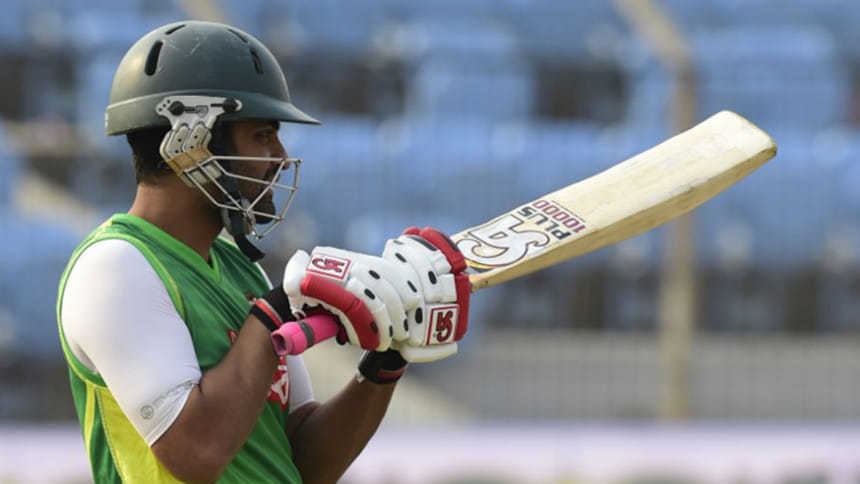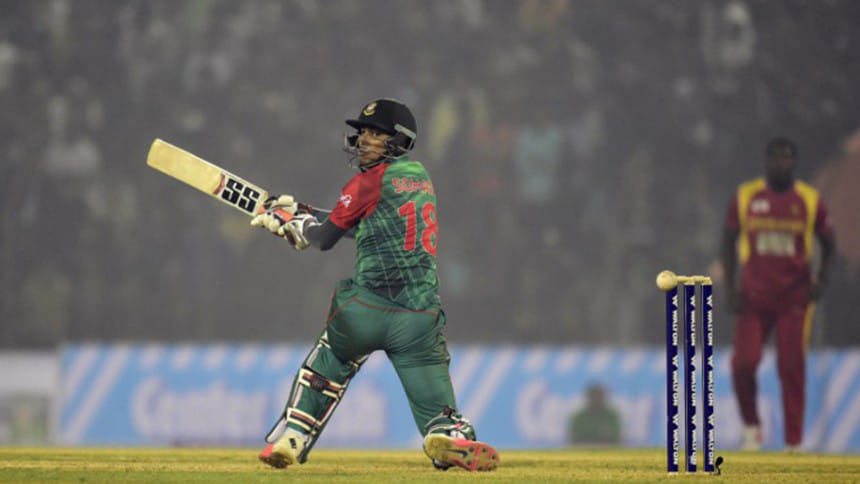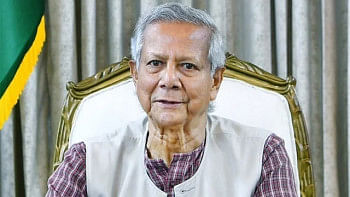Batter’s approach key to Bangladesh’s fortune

The first match of the four-game T20 series on January 15, which Bangladesh won by four wickets and eight balls in hand was closer than the stats would suggest. Mustafizur Rahman bowled the 19th over, took two wickets in consecutive deliveries and conceded only two runs.
In the process he denied the visitors the crucial runs at the death, something Zimbabwe’s batting consultant Marvan Atapattu pointed out as the deciding factor in his team’s loss on Friday. "We were beaten in the 19th over. Obviously we were in a position to probably have at least 20 runs more in our total. But unfortunately we didn't get that due to good bowling and not so much when it comes to smart batting. We will try to rectify it and we will try to do better in the next game." Atapattu shared his views to the media.
While Bangladesh romped home eventually, they required all of the eight batsmen in the side to overcome Zimbabwe's total of 163, which incidentally was the highest ever total they chased down at home and the second highest overall.
The pressure of a close finish got to Zimbabwe’s Brian Vitori and Luke Jongwe. Both of them sprayed the ball all over the place late in the game, and made it easy for Shakib Al Hasan and Nurul Hasan to score where they wanted to. After Sabbir Rahman holed out in the 15th over, Bangladesh needed 43 runs from 30 balls. Sibanda had earlier spilled a sitter at long-on when Sabbir was on 36.
In the next five overs, Jongwe gave 11 runs, Vitori conceded 14. With 13 needed from 12 balls, Jongwe lost all his control and gifted the match to the Tigers on a silver plate…Shakib had the measure of him and knew what was coming his way, and duly he made the visitors pay, pay the ultimate price for their sloppy cricket.
In the first game of the series, the side that held their nerve and made the fewest mistakes came out in front. However, Bangladesh can’t bank on the potential blunders of Zimbabwean players to bail them out of jail every single time. By scrapping home to victory against a team that got annihilated by Afghanistan would not do Bangladesh a world of favour, especially in terms of confidence ahead of the ICC T20 World Cup in India.
Bangladesh captain Mashrafe Mortaza needs his batsmen to make the most of the starts they get, something that may haunt the Tigers against tougher opponents if not against Zimbabwe, considering the depleted bowling line-up of the African nation.
Tamim went down the wicket, but lost his shape as he tried to hit the ball too hard and ended up lobbing a simple catch to mid on. He was on 29 from 24 balls, going at a decent rate, and needed to stay longer after smoking some good-looking boundaries to get going. Sabbir could have been dismissed when he was on 36 from 30 balls. He went on to add another ten to his score before his slog-sweep failed to clear deep mid-wicket.
Mushfiqur Rahim looked in great touch, and raced to 26 from 18 balls. The required run-rate was touching nine, and another wicket at this stage would have made things extremely difficult for a new batsman. The set batsman, Mushy threw his wicket away with a slog-sweep that was badly timed and placed. His presence at the crease could have avoided a near-panic scenario for Bangladesh with the game doing down to the wire. If Mahmudullah hadn’t struck that timely six in the 17th over before he got out, things could have been worse for Bangladesh.

Only earlier in the day, Zimbabwe openers made a fantastic start, and piled up 101 runs before the twelfth over was completed. Hamilton Masakadza went on to hammer 79 runs from 53 balls, but didn’t find the strike as often as he wanted to late in the innings.
If only one of the set Bangladeshi batsmen, Tamim, Sabbir or Mushfiqur had played a longer innings, we would have won by a canter. Bangladesh needs to sort this batting frailty out before the Asia Cup and the T20 World Cup. One of the top four batsmen must take his team home in a chase in twenty overs cricket. Therefore, Bangladeshi fans and supporters would want to see the top-order bat with more responsibility, even against Zimbabwe, the team we have grown used to whitewashing over the years.
The top four batsmen, be it Tamim, Soumya, Sabbir or Shuvagata, should not worry about their strike rate too much early in their innings, because even if they are going at a run a ball, they can make up for the quiet overs with big hits later in the game.
If they become frustrated with dot balls, they go for that shot that doesn’t exist, and throw away their wicket after spending good time at the crease. Maybe the approach of our batters top of the order is the key to better performance in the matches ahead.

 For all latest news, follow The Daily Star's Google News channel.
For all latest news, follow The Daily Star's Google News channel. 




Comments